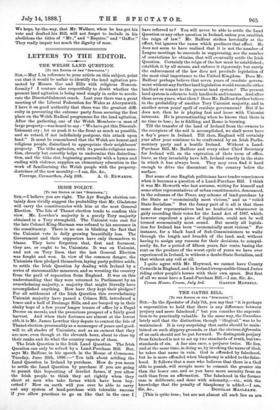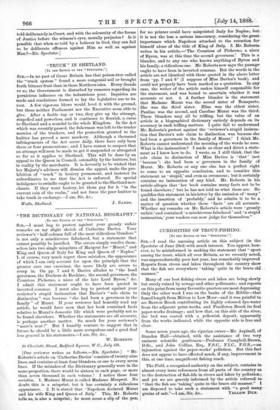THE OATHS BILL.
[TO THE EDITOR OF THE "SPECTATOR."]
the Spectator of July 7th, you say that "it is perhaps a superstition to hold that there is any difference between perjury and mere falsehood ;" but you consider the supersti- tion to be practically valuable. In the same way, the Guardian lately said that the distinction, though "illogical," was to be maintained. It is very surprising that oaths should be main- tained on such slippery grounds, or that the obvious differentia of an oath should not be put forward. To distinguish perjury from falsehood is not to set up two standards of truth, but two standards of sin. A liar sins once, a perjurer twice. He lies, and at the same time, in doing so, by invoking the name of God, he takes that name in vain. God is offended by falsehood, but he is more offended when blasphemy is added to the false- hood. It follows that a man who believes that there is a God able to punish, will scruple more to commit the greater sin than the lesser one, and so you have more security from an oath than from an affirmation. The falsehood in the former case is deliberate, and done with solemnity,—viz., with the knowledge that the penalty of blasphemy is added.—I am, told deliberately in Court, and with the solemnity of the forms of Justice before the witness's eyes, morally perjuries ? Is it possible that when so told by a believer in God, they can fail to be deliberate offences against Him as well as against Man P—En. Spectator.]



































 Previous page
Previous page